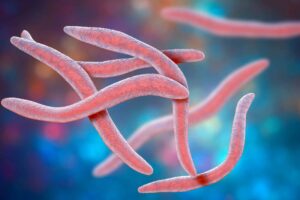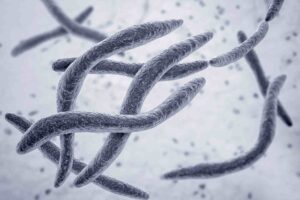cancer
Oncology, Gastroenterology
Nanoparticle-based approaches are a promising strategy for treating colorectal cancer.
Oncology
Genetic factors can influence tumor-associated microbes, offering insights into colorectal cancer progression and potential therapeutic targets.
Oncology
Certain bile acids produced by gut microbes can interact with specific receptors in the body, influencing immune cells to fight tumors.
Oncology, Gastroenterology
Each Fusobacterium nucleatum population has unique traits and distribution patterns across body sites and conditions such as colorectal cancer and Crohn’s disease.
Gastroenterology
Understanding the complex interactions between exercise, diet and gut health can help to develop approaches to influence the gut microbiota, boost immunity and prevent or manage gastrointestinal diseases.
Industry
Preclinical findings will be presented at the American Association for Cancer Research (AACR) Annual Meeting in Chicago.
Video, Neuroscience
Emil Chuang, Chief Medical Officer at Intrinsic Medicine, explores the growing understanding of gut-brain axis disorders and the potential of Human Milk Oligosaccharides (HMOs) in their treatment.
Oncology
The microbiota plays a protective role against colorectal cancer by regulating Snhg9.
Oncology
Probiotics such as Lactobacillus can complement breast cancer therapy to improve prevention and treatment.
Gastroenterology, Video
Professor Maria Rescigno explores the critical role of the gut microbiota in maintaining intestinal barrier integrity and its implications for health.













